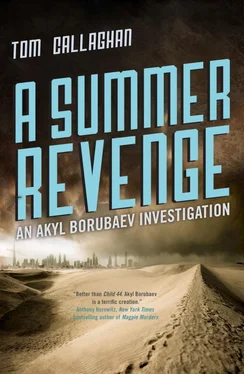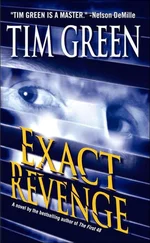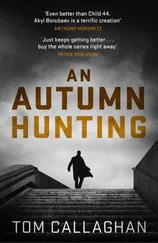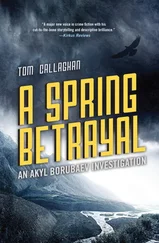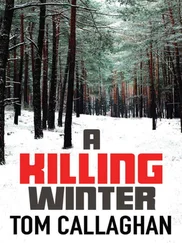Over on my left I could see skyscrapers of all shapes and sizes, and towering above them all a silver needle stabbing the sky.
“What’s that?” I asked the driver.
“Burj Khalifa, tallest building in the world,” he said, proud as if he’d built it himself. “Over eight hundred meters.”
I watched the morning light bounce off each facet of the tower as we passed, stared like some idiot from a village in the big city for the first time. As we crossed the creek and headed toward Bur Dubai, it struck me that Ms. Sulonbekova might be more than a little difficult to find.
I hadn’t expected Tynaliev to book me into the Burj Al Arab but the Denver was no one’s idea of luxury. I checked in with a surly desk clerk who barely deigned to look at me, pressed the elevator button for the fifth floor, stood there for several minutes.
“The lift isn’t working?” I asked.
The clerk merely shrugged, turned his attention to his mobile. As I headed for the stairs I noticed an ornamental fish tank now acting as a fish cemetery. Maybe it was an omen. I climbed up the stairs, doing my best to avoid the more obvious holes and stains in the worn carpet. A series of bare lightbulbs lit my way, and I found myself outside Room 503. The key was attached to a block of wood the size of a brick, in case someone liked the key so much they tried to steal it. I opened the door, expecting to find nothing very much. It was worse than that.
The single bed was pushed up against the opposite wall, and if I held my breath I could probably walk past it. I pressed on the mattress and listened to worn springs give a sigh of contempt. A cupboard held a toilet and shower, small enough so I could shower and shit at the same time. A dripping tap had left an orange streak down one wall, and judging by the hairs in the plughole someone had recently shampooed a large dog. I decided this probably wasn’t where the minister stayed when he came to Dubai.
Tynaliev had given me three thousand dollars and a mobile phone with a local SIM card, so I could make calls without the authorities identifying me. There was a single name in the contact list. Salman Kulayev. Tynaliev had told me Kulayev could organize everything I might need, including “necessary liaison and equipment.”
“Flight upgrades? Restaurant reservations?” I’d asked. Tynaliev had glared at me, and I’d looked down at his hands, seen the scars from other people’s teeth across his knuckles.
“I expect you to take this matter seriously, Inspector,” he said, “very seriously indeed.”
I’d mumbled an apology, made my escape, wondering what would await me on my return.
Now I sat in that shabby hotel room and listened to the air conditioning grumble and splutter, coughing out an occasional and ineffectual breath of cold air. I thought of Saltanat, in Tashkent or who knew where, remembering her slim body against mine, and felt totally alone.
I ignored the sign on the wall, lit a cigarette, sucked deep, dialed. The phone rang for several minutes, was eventually answered.
“ Da? ”
“Kulayev?”
“Who’s this?”
A smoker’s voice, rasping, middle-aged. Chechen accent. Probably on the run from the Russians and hiding out in Dubai.
“Mikhail suggested I call you.”
Silence. I heard the snap of a lighter, the crackle of burning tobacco.
“The Dôme coffee shop at Burjuman Mall. Noon.”
“How will I recognize you?”
Kulayev, if it was him, laughed, and I could hear phlegm rattling in his throat. No nonsense about carrying yesterday’s Pravda and code phrases about weather in the Baltic.
“Don’t worry. I’ll know you.”
And the line went dead.
I asked directions at the desk, had a printed map thrust at me, headed outside. The heat was a punch in the face, a slap from a wet towel. According to the map, Burjuman was only a few blocks away, but by the time I reached the first pedestrian crossing, I was drenched in sweat, my shirt clinging to me like a teenage girlfriend. Maybe I could use some of Tynaliev’s dollars to buy some lightweight clothes. I could always give him the receipts. Or the clothes.
Burjuman Mall was next to a futuristic-looking building which turned out to be a station on the Dubai Metro. I’d ridden the Moscow Metro with Chinara and we’d admired Mayakovskaya station with its high ceilings and marble walls. Maybe I’d get to ride the Metro in Dubai.
The Dôme stood next to one of the four entrances to the Metro. I went inside and found a small table in one corner, away from the other customers. A Filipina waitress brought me a menu, but thanks to the smattering of English I’ve picked up over the years, I waved it away and asked for an espresso.
I’d only taken a sip when a shadow fell across the table and I looked up. I’d expected the usual Chechen stereotype, stocky, muscular, dark hair, black eyes, a scowl that emerged from a tangle of beard, leather jacket, an attitude that said, “Fuck the world.” The man in front of me was in his late thirties, slight, dressed in a white linen shirt and blue chinos, balding, with melancholy brown eyes that suggested the world had given him more than one beating over the years. He pulled up a chair, beckoned to the waitress, pointed at my cup, held up two fingers and gestured he wanted large ones. She nodded, bustled away.
“Salman Kulayev? I’m…”
“Akyl Borubaev. I know.”
“So Minister Tynaliev does share some of his secrets?”
Kulayev smiled, looked ten years younger. The coffees arrived, and he downed the first one in a single gulp, pulled the second cup toward him.
“When it suits him,” Kulayev said, “which isn’t all that often.”
I sipped at my espresso, thick and aromatic, my heart thumping with the caffeine, wondering why Kulayev wasn’t bouncing around like a rabbit after two huge ones.
“Any idea where I can find this woman? Natasha Sulonbekova?”
“Possibly. How much do you know about her?” Kulayev asked, dabbing at his mouth with a tissue.
“She was involved with the minister. She stole something from him. He’d like it back,” I said, not wanting to reveal too much.
“You know she was a prosti ?”
I nodded. “That’s what the minister finally told me. I think he was reluctant to admit a man of his position would pick such a woman.”
Kulayev laughed. “That’s what happens when you think with your little head. You think he’d prefer someone with a degree and a face like a bag of walnuts?”
“You think that’s what she’s doing here?” I asked. “Working one of the bars? Or out of an apartment somewhere?”
“Probably, to get day-to-day living expenses, food, rent, that sort of thing,” Kulayev said.
“You think she’s got an agenda about the information she stole?”
“Of course.” Kulayev shrugged. “Whatever it is, it’s worth a lot of money, or Tynaliev wouldn’t have sent you here.” He gave me an appraising look, sizing up just how much of a help or a threat I might be to him. “How do you know the minister, if you don’t mind me asking?”
“I am—was—an inspector in the Bishkek Murder Squad. I investigated the death of his daughter.”
“So he trusts you?”
It was my turn to laugh.
“I don’t think he trusts his own reflection in the mirror when he shaves,” I said.
Kulayev smiled.
“So she’s here to sell information?” I asked. “Where would I look for her?”
“I would have thought the best place to start would be one of the bars. The authorities don’t approve of working girls. They round them up from time to time, put them in the cells for a couple of days and then deport them. But I know a Bulgarian guy, Marko Atanasov, a real piece of shit, who runs some of the girls here. He keeps them in line with the threat of the police or the occasional beating. It’s amazing how easy it is to keep a woman in line with a wire coat hanger. And the coat hanger always comes in handy if they fall pregnant.”
Читать дальше
